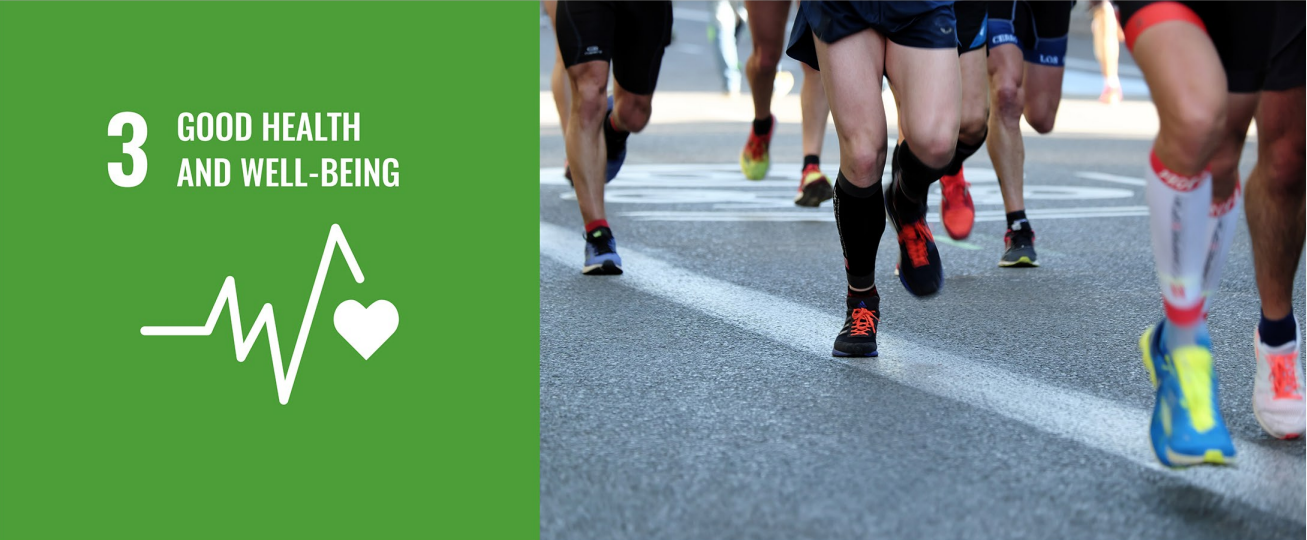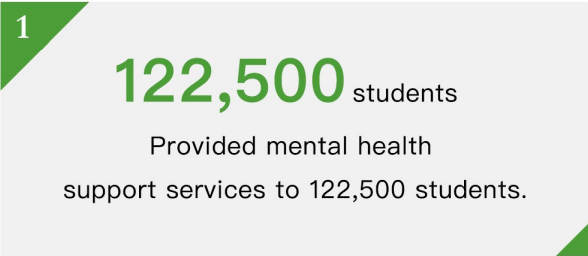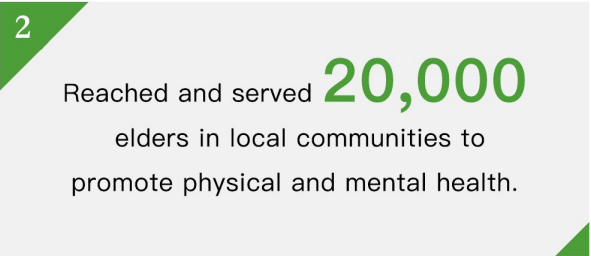


3.1 Spirit of the SDG and the University’s Philosophy
SDG 3 aims to ensure healthy living and promote the well-being of everyone. Its detailed objectives include reducing the mortality rates of pregnant women and of children younger than 5 years, eliminating AIDS, tuberculosis, malaria, and other infectious diseases, and making considerable reductions in the number of deaths resulting from factors such as dangerous chemicals and other forms of pollution in the air, water, and soil, and also from traffic collisions.
NTNU attaches great importance to the physical and mental health of faculty and students, and creates a friendly campus environment with a deep sense of well-being. In addition to setting up a unit dedicated to coordinating and constructing a comprehensive health-promotion support system, the University went a step further by integrating its academic activities with the system to extend its influence on the local community. In terms of overall institutional governance, the University proactively protects the health and well-being of faculty and students. Through various programs and activities, the University assists faculty and students to maintain their physical and mental health, as well as develop healthy interpersonal relationships. At the community level, the University shares professional resources on campus to care for the elderly, young children, and families in the community. Moreover, it signs cooperation agreements with community clinics to improve community health-care treatment and services. At the national level, the University emphasizes improving health and preventing disease. In addition to nurturing Taiwan’s health education professionals, it also puts forward recommendations on social policies that are beneficial to health and well-being in Taiwan. On the international front, the University actively connects with overseas universities and communities through various programs to share research results in order to contribute to international health promotion.
3.2 Achievements
Promoting a healthy campus environment through various programs
Besides having a smoke-free campus, NTNU also offers programs on smoking prevention and cessation. Moreover, these efforts have been extended to the community, to improve the health-related quality of life of the University’s teachers and students as well as the community residents. The University provides free or discounted mental health support courses and counseling services to faculty and students. For example, the Student Counseling Center organizes activities related to life education, emotional education, career education, mental health, and suicide prevention. All activities are free for the 27,500 participants. In addition, the University is the first in Taiwan to introduce a Student Adviser System, which serves an average of more than 90,000 students per year. The advisers provide students with comprehensive counseling in all aspects of their lives, including academic work, life, career, and emotional well-being. Furthermore, the Community Counseling Center provides six free consultation services for faculty, project staff, and full-time students at the University. The University provides free sex/gender/emotional education through formal courses, informal courses, potential courses, and other activities. The University also proactively promotes awareness of AIDS prevention and treatment, safe sex, and a drug prevention communications campaign both on and off campus.
Constructing social health and well-being programs and activities
In recent years the University has been proactively promoting programs and activities to improve the health and well-being of the elderly. This is achieved by designing a talent empowerment model for community-elderly services, assisting students to enter the future-elderly industry, and making it their professional aspirations to serve the elderly. The University promotes connections with the local community and fosters talent for serving the elderly, thereby building an age-friendly community at NTNU. For four consecutive years, NTNU has cooperated with government units, the elderly industry, communities, and schools to jointly host the Long-Term Physical and Mental Health Promotion (長健) program for the elderly. This has resulted in over 20,000 community residents paying more attention to issues related to the elderly. In addition, the Hsien Tien Psychological Counselling Clinic established to provide community residents and families with relevant psychological support services. More than 3,100 community residents have participated in these activities. Finally, the University provides free use of campus space and sports-related facilities to local communities on and off campus, with more than 80,000 visitors using this annually.
3.3 Featured Highlights
3.3.1 Providing mental health support for students, with the number of students being counseled ranking first in Taiwan
The Student Counseling Center of the University provides students with free mental health support courses and counseling services, and organizes various activities that include providing life education, emotional education, career exploration, and information about cybersecurity, suicide prevention, and mindfulness-based stress reduction. The cumulative number of participants has reached 27,500. The University is the first in Taiwan to introduce a Student Adviser System that provides students with comprehensive counseling on all aspect of their lives, including academic work, life, career, and emotional well-being. Nearly 20,000 individuals have received counseling in more than 3,000 primary counseling sessions, with more than 95,000 students counseled.

3.3.2 Building a sustainable and age-friendly community that has received recognition from all sectors of society
The University has a project entitled the “Comprehensive Long-Term Physical and Mental Health Promotion System Upgrade Plan for the Elderly – Creating a Sustainable Age-Friendly Community” to improve the physical, psychological, interpersonal, social health, and well-being of the elderly in the community. There are three action plans: (1) “Active Sports” which is an innovative program for sports intervention of the elderly and other specific population, with a practice program to foster talent and physical fitness of the elderly, (2) “Healthy Interaction”, which comprises a day-school food education and garden city network plan, community-elderly-based nutrition education upgrade program, Hsien Tien counseling and elderly mindfulness promotion program, and practice plan for elderly mindfulness and talent development, and (3) “Creative Arts Inspiration” , comprising an intergenerational colearning green map and day study program, an old-age innovative design thinking service plan, and an old-age cultural and creative arts and live broadcast innovation program. These three action plans achieve the ideal of “talent encouragement” by combining active sports with talent training programs for community elderly services and proactively linking with the government, the community, and related industries. The relevant action plans have encouraged participation by 20,000 people in the community and the surrounding industries. This program has been recognized by the Taiwan Corporate Sustainability Awards for two consecutive years as having produced excellent results.

Related Media Coverage
3.3.3. Use cutting-edge materials and chemical synthesis technology to assist in forensic science to curb the spread of new psychoactive substances
The spread of new psychoactive substances (NPS) has become an increasingly serious social problem. The University cooperated with the CTBC Anti-Drug Educational Foundation to establish the CTBC Center for Addiction Prevention and Policy Research. In addition to providing advice to the government on addiction prevention, this center also fosters talent in this area and helps to construct a social safety net. In addition, an interprofessional team has been established to develop diverse and accurate cutting-edge analysis techniques for drug detection. The mass-spectrometry signatures of more than 200 types of NPS have been established, together with a microfluidic chip-based system constructed using 3D printing for analyzing drug reactions in urine samples rapidly and easily. This will help stop the spread of NPS and thereby protect the health of the Taiwanese population.

